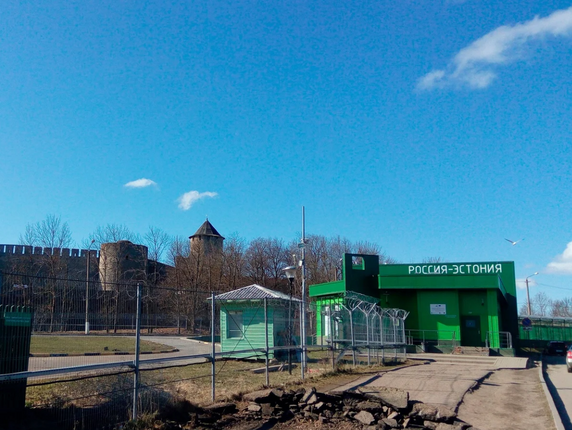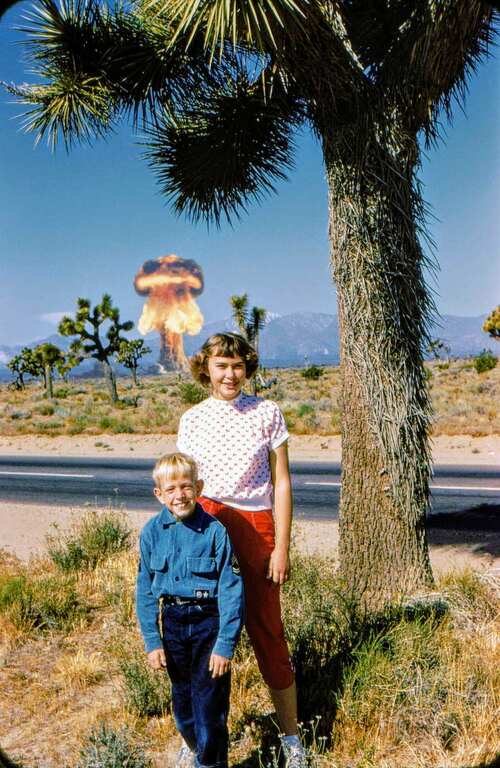Doing Ethnography in Times of War, Political Instability, or the Apocalypse
Arturs Holavins (Artur Kholiavin)
PhD, InPart Project Postdoctoral Researcher
Jul 25, 2022

I pushed a metallic gate and entered the “grey zone” between Russia and Estonia, holding my daughter in my hands. I had passed through these gates dozens of times before. Usually, a routine thing to do. Once, at the same border crossing, I even failed to cross back to Europe due to visa irregularities. A minor inconvenience borderline with a funny adventure back in my happy doctoral studies years. Not much to worry about back then. It was quite a different experience this time: the bus had been waiting for clearance for three hours instead of the usual half an hour; the fully booked bus had been populated by anxious foreigners with colossal luggage and tired children (I mean expats, not Russian-speakers with the EU passport like me); border guards were grim and serious (a considerable difference to usually smiley and polite attitudes). The moment a border guard called her boss looking at my passport did make me nervous this time.
Were these details insignificant, a fluctuation, an unpredictable expression of informality, like, you know, the day when everything goes wrong? No, not at all. After all, I had been allowed to leave the country by the head of the checkpoint after a couple of additional questions: hardly an issue in itself. What was different is that it was March 2, 2022. A week before the Russian army crossed into Ukraine, starting a “military operation” that soon turned into a full-scale inter-state war (see: Uppsala Conflict Database for the definitions), the closed skies had effectively banned flights from Russia, first sanctions on banks were introduced, and the old “order” of things had been very much gone. A tectonic shift of the coronavirus pandemic scale (if not bigger) for the region.
I, an ethnographer and STS researcher at the Health, Ethics and Society department of the Maastricht University, had been directly impacted by the unfolding disaster of apocalyptic scale, finding my on-site fieldwork abruptly ending with a messy and long trip back home from Moscow. A booked direct flight from Moscow has been cancelled. So, instead, the trip in question turned into a several-day journey. It included a taxi from Yasenevo district of Moscow to the Leningradsky railway station; a Sapsan train to St. Petersburg; a late-night taxi to Vasilevsky island; an overnight stay at the wife’s parent’s place; a taxi to the Obvodny bus station; a bus to Narva (our seats were double-booked, but a problem miraculously solved) through the Ivangorod border crossing, of which I been speaking above. All followed by my stepfather driving us to Riga by car; and a flight from the Riga Airport to Amsterdam Schiphol the following day. A major inconvenience for a family with a one-year baby girl. Of course, nothing even closely comparable to the destroyed cities in Ukraine, tens of thousands of casualties, hundreds if not thousands of detained citizens in Russia, and a general social, cultural, economic, and political upheaval sweeping the region. Yet, it was a thought-provoking experience that gave me a new perspective on the frailty of life and the fragility of normalcy.
The ideal perception of ethnography is that a community studied remains intact throughout the research. It is out there as an Eldorado, a hidden Wonderland, awaits to be uncovered, thoroughly explored, and understood. This narrative is problematic, as my experience of doing research in Russia in 2022 shows. Instead of a static snapshot, the field is fluid, sometimes dramatically, and by that, I mean really substantially changing. To the extent dramatic and apocalyptic that ethical commission approvals, fieldwork plans, research standards, observation and interview guides, and other things associated with thorough and decent ethnography quality assurance procedures become irrelevant, misfit, or obsolete. Instead of the Eldorado, you find yourself in the apocalyptic dystopia with no guiding light or a much-needed but absent “survival handbook”. Based on my experience, I speak of survival in terms of the research project, but one can legitimately extend it to situations where the survival of researchers can be understood literally.
So, the field is not rigid. It is fluid, messy, and changing in time and space. A field is our scientific imaginary, interpretation, and approximation. An ethnographic journey is always a work of construction, co-produced by research participants and researchers. Moreover, even in objectivist epistemology terms, the field you first enter is not the same field as you leave. For instance, in my doctoral project, I talked to several representatives of a small NGO organised by enthusiasts based on a specific social project helping older people. By the time I finally defended my dissertation, they had become a massive charity foundation with an endowment worth more than a million dollars. How much was left of my argument referring to elderly care-providing NGOs in 2015 if the defence happened in 2020? Theoretical argument stayed, but not so much empirical evidence supporting it. The changes and transformations of a specific organisation are minor: micro-level, or organisational, yet they are crucial for the research epistemology. How about the whole “context” being blown away by the war, revolution, or natural disaster? What does it imply for the research if an alien invasion happens? How do ethnographers make it best to observe Doomsday?
The case of my fieldwork on patient organisations in Russia fits well a discussion of macro-level fast-paced societal changes' impact on ethnographic research. At the stage of planning (Summer 2021), it felt like yet another story of innovative and proactive civic organisations engaging state institutions, with the latter being cooperative and supportive of non-governmental social initiatives despite the overall authoritarianism of the political regime (surely, this interpretation is a matter for the scientific debate). By the time of the abrupt end of the on-site fieldwork in late February 2022, however, this all turned out to be a completely new place and thing. My research participants and I turned out to be in the country overwhelmed by the omicron strain of coronavirus, waging full-scale armed conflict against the neighbour, and authoritarian political machinery crushing what’s been seen earlier as “safe” spaces for public participation and social activism.
I do not have immediate answers on approaching catastrophic changes and making them work for the benefit of the research and research participants rather than being an obstacle for them. Instead, I can offer several questions to include in preparing any ethnography, which might be caught up in structural transformations and crises. First, how to navigate fast and uncontrollable changes? How to balance our own identities and research needs? How to adapt to the apocalypse? What implications are there for being in a war-torn, pandemic-torn, natural-disaster-torn, and political-crackdown-torn environment from the ethical point of view: are you ready to leave? to stay? Does “going native” imply also remaining with the community, which opened up to you and offered knowledge about them? Finally, how to balance data collection, your and your family’s safety, and research participants' safety? Considering that apocalypse can happen anytime and anywhere, one better answers these questions to themselves and think through possible plans B, C, and D before entering the fieldwork. Otherwise, a researcher risks finding out that there is no field as such at some point. No research. And, in a worst-case scenario, no researcher.
One possible solution I have in mind is training all social scientists on surviving in war zones or places hit by social unrest and natural catastrophes. Also, I would not rely much on the university simply banning you from visiting such sites. First, it is hard to predict whether your safe space will become dangerous the following day. On February 24, I woke up after a late-night trip from St. Petersburg, where we spent a wonderful weekend celebrating our daughter’s first birthday with the family and friends. Awakening has been followed by reading news about the first rockets hitting Western Ukraine and Kyiv. Then, I also witnessed complete silence and confusion at the online technical meeting organised by the patient organisation leaders that day). Second, your internal researcher’s integrity and urge for purposeful research might become very critical of giving up on people struggling against disasters. Suppose we do not go to dangerous places as ethnographers. In that case, the overall picture of the world might end up being skewed towards rose unicorns dancing on the banks of milky rivers of the Utopian “developed” societies. Not that there is a lack of critical research on struggling communities, but there is definitely not enough information about distant and the most vulnerable and suffering communities around the globe. And we, as researchers, are in a privileged position not just to help people right away but also to make sense of what and why has happened to help them long-term and prevent or mitigate similar disasters (of any kind) in the future.
